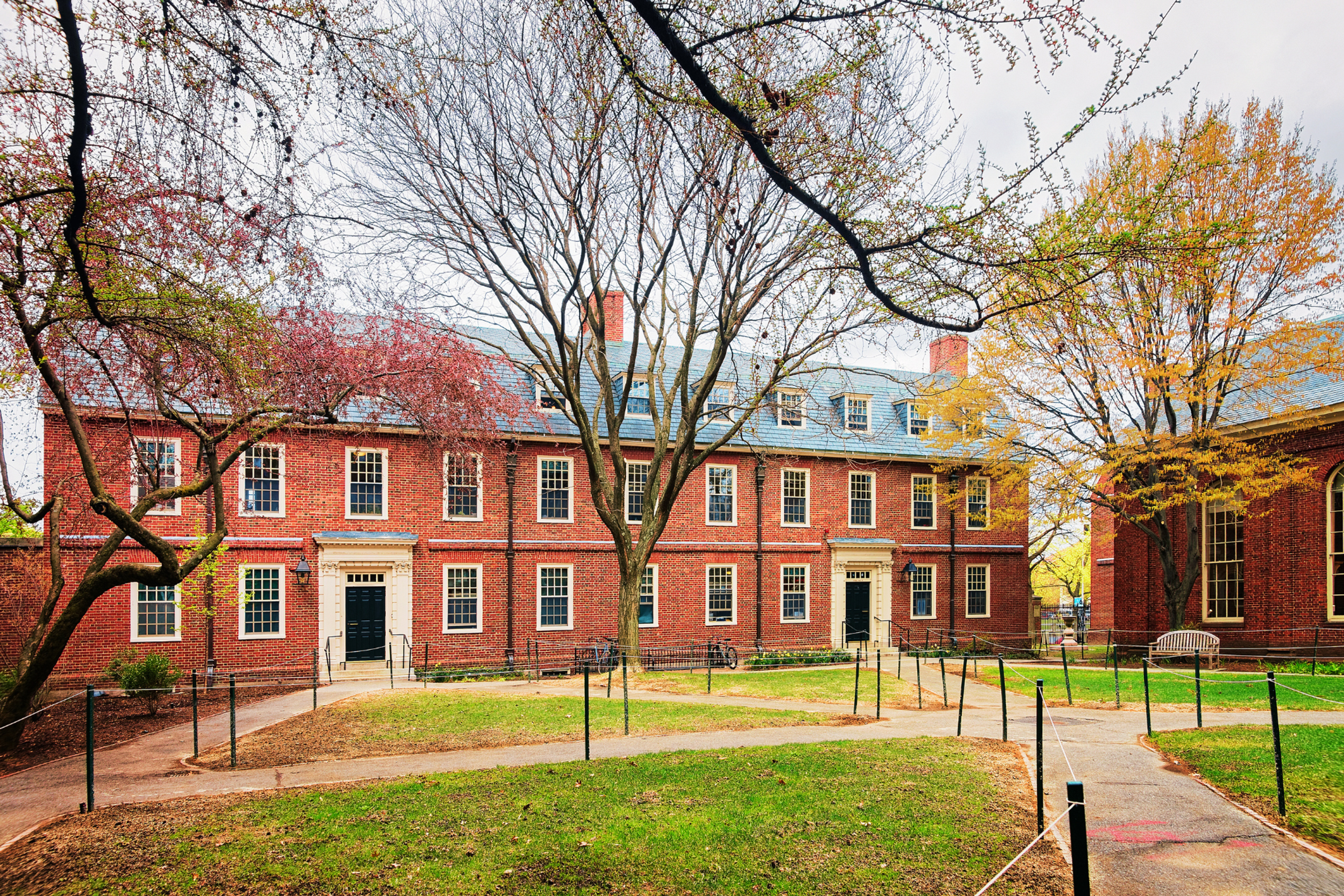20+ Medical Schools in New England: New York, Massachusetts, New Jersey, & More
Explore 20+ top medical schools in New England. Compare programs, tuition, admissions, and career paths in Massachusetts, New York, and beyond!
Posted June 13, 2025

Join a free event
Learn from top coaches and industry experts in live, interactive sessions you can join for free.
Table of Contents
New England is home to some of the best medical schools in the U.S. If you're planning to pursue a career in medicine, choosing the right medical school is a big step. The right school will help you build the skills, experience, and connections you need in the health sciences field.
But with so many options, how do you pick the right one? Some schools focus on family medicine and rural healthcare, while others emphasize biomedical research and specialty training.
In this article, we’ll break down how many medical schools are in New England, highlight their strengths, and help you decide which is right for you. Whether you want top-tier medical school admissions guidance, strong personal and professional development, or hands-on clinical training, we’ve got you covered. Keep reading to explore your options!
What is Medical Education?
Medical education is the process of training future doctors, from the first day of medical school to residency and beyond. It covers everything from basic sciences to hands-on clinical training in health systems science.
Students start with classroom-based learning, where they study subjects like anatomy, physiology, and pharmacology. As they progress, they gain hands-on experience in hospitals, working directly with patients under the guidance of experienced physicians. Schools like UMass Chan Medical School and Dartmouth College Geisel School emphasize both academic excellence and real-world medical training.
In the U.S., medical education is rigorous and takes several years. After completing medical school admissions requirements, students must pass board exams and complete residency training in fields like family medicine or internal medicine. The goal is to prepare doctors to provide excellent patient care while advancing in the health sciences field.
Why is Medical Education Important?
Medical education is the foundation of healthcare. It ensures that doctors are well-trained to diagnose, treat, and care for patients. Without a strong education system, the quality of medical care would suffer.
Top U.S. medical schools, including Massachusetts medical schools and Boston University School of Medicine, focus on both science and patient care. They train students to think critically, work in diverse health systems science environments, and handle real-world challenges.
A well-rounded medical education also promotes patient and provider wellness. Doctors learn to balance technical skills with empathy, ensuring that both patients and healthcare providers thrive. Schools like Dartmouth College Geisel School emphasize personal and professional development, preparing future doctors for long, rewarding careers.
Ultimately, medical education shapes the future of healthcare, creating skilled professionals who drive innovation, improve public health, and advance biomedical research.
Medical Schools in Connecticut

Connecticut is home to strong medical schools that provide excellent training in both research and clinical practice.
1. Yale School of Medicine
- Research Departments:
- Clinical Departments:
- Sample Programs:
Yale School of Medicine is one of the most prestigious U.S. medical schools and a leader in biomedical research. Known for its innovative Yale System of Medical Education, the school offers a flexible learning environment where students take responsibility for their education.
- Top-ranked research institution with strong funding and resources.
- Affiliated with Yale New Haven Hospital, providing top-tier clinical exposure.
- Encourages independent research, allowing students to contribute to medical advancements.
- Competitive medical school admissions process, with a low acceptance rate.
Students interested in academic medicine and research will find Yale an outstanding choice for their health sciences education.
2. University of Connecticut School of Medicine
- Employment %: 90%
- Clinical Departments:
- Centers and Institutes
- Median Salary for Health Care Management:
- $65,000-$75,000
- $5,000 (Median Bonus)
UConn’s medical school is well-known for its emphasis on primary care and community-focused healthcare. It provides a strong balance between research and hands-on training.
- Strong focus on primary care and rural medicine, preparing students for diverse clinical settings.
- Partnership with UConn Health, offering excellent clinical exposure.
- Offers a personal and professional development curriculum to support students' success.
- More affordable than many private schools, with strong financial aid options.
For students interested in family medicine or internal medicine, UConn provides an excellent foundation.
3. Frank H. Netter MD School of Medicine at Quinnipiac University
- Sample Programs:
- Sample Curriculum:
- Residency Annual Salary:
- PGY-1 - $69,405
- PGY-2 - $71,832
- PGY-3 - $75,385
- PGY-4 - $79,433 (for Rural Psychiatry Residency only)
A newer medical school, Quinnipiac’s Netter School of Medicine has quickly gained a reputation for its commitment to primary care and community health.
- Focuses on training primary care doctors, helping address physician shortages.
- Partnerships with regional hospitals and healthcare systems for hands-on experience.
- Small class sizes offer a personalized learning experience.
- Emphasizes patient and provider wellness to support students throughout medical training.
Students interested in working in underserved communities or focusing on family medicine will find this school a great fit.
Medical Schools in Maine

Maine has fewer medical schools than other New England states, but it plays an important role in training doctors, especially in primary care and rural medicine.
4. University of New England College of Osteopathic Medicine
Sample Programs:
- Clinical Anatomy (M.S.)
- Osteopathic Medicine (D.O.)
- Biomedical Science
- Dental Medicine (D.M.D.)
- Physician Assistant (M.S.P.A.)
Research Centers
- Center for Cell Signaling Research (COBRE)
- Center for Excellence in Aging and Health
- Marine Science Research Programs
- UNE North: The Center for North Atlantic Studies
- Center for Pain and Research (COBRE)
Average Annual Salary for D.O.: $208,000
The University of New England College of Osteopathic Medicine (UNE COM) is the only osteopathic medical school in New England. It focuses on family medicine and serving rural communities.
- Emphasis on osteopathic medicine, which includes hands-on techniques for diagnosis and treatment.
- Strong commitment to rural medicine, training doctors to serve in underserved areas.
- Partnerships with hospitals and clinics across New England, providing diverse clinical settings.
- Encourages students to focus on patient and provider wellness, ensuring a holistic approach to medicine.
UNE COM is a great choice for students looking for primary care training with an osteopathic focus.
Medical Schools in Massachusetts

Massachusetts is home to some of the best medical schools in the country. With world-class research institutions and top-tier hospitals, it’s an excellent place for medical school admissions and training.
5. Harvard Medical School
Sample Programs:
Sample Courses for M.D.:
- Foundations for the Advanced Dental Practitioner
- Biostatistics
- Oral Microbiology
- Oral Immunology
- Clinical Pharmacology
Research Departments:
- Biological Chemistry and Molecular Pharmacology
- Biomedical Informatics
- Cell Biology
- Genetics
- Microbiology
Harvard Medical School is ranked #1 in the U.S. for medical education and biomedical research. It has a global reputation for training top physicians and medical researchers.
- Affiliated with leading hospitals, including Massachusetts General Hospital and Brigham and Women's Hospital.
- Strong emphasis on health systems science, leadership, and medical innovation.
- Highly competitive medical school admissions, accepting only a small percentage of applicants.
- Offers unparalleled resources for students interested in research, specialty training, or academic medicine.
Harvard is the ideal choice for students who want access to elite faculty, cutting-edge research, and top-tier clinical settings.
Learn more here: Harvard Medical School: Admission Requirements and Application Process
6. Tufts University School of Medicine
Medical Programs:
- Doctor of Medicine
- Master of Public Health
- Doctor of Physical Therapy
- Physician Assistant
- Master of Science in Biomedical Science
Academic Departments
- Anatomical and Clinical Pathology
- Anesthesiology and Perioperative Medicine
- Dermatology
- Developmental, Molecular and Chemical Biology
- Neurology
Tufts is a well-respected Massachusetts medical school that offers an MD program, dual-degree options, and a strong focus on public health.
- Known for its primary care programs and public health initiatives.
- Affiliated with Tufts Medical Center, providing excellent clinical exposure.
- Offers personal and professional development support to help students balance academics and wellness.
- Dual-degree options include MD/MPH and MD/MBA for students interested in health systems science and leadership.
Tufts is a great fit for students looking for a mix of urban clinical exposure and strong academic support.
7. Boston University Chobanian & Avedisian School of Medicine
Academic Departments:
- Anatomy & Neurobiology
- Biochemistry & Cell Biology
- Medical Sciences & Education
- Virology, Immunology & Microbiology
- Pharmacology, Physiology & Biophysics
Sample Clinical Departments:
Sample Courses:
- Foundational Science
- Pathophysiology
- Disease management
Boston University School of Medicine is known for its commitment to urban health programs and patient-centered care.
- Works closely with Boston Medical Center, a leader in safety-net healthcare.
- Offers hands-on training in diverse clinical settings, including underserved communities.
- Strong emphasis on biomedical research and medical innovation.
- Supports students interested in internal medicine, primary care, and public health.
Students looking for a well-rounded education with a focus on urban healthcare will find Boston University School of Medicine a strong option.
8. University of Massachusetts Chan Medical School
Academic Departments:
Sample Programs:
UMass Chan Medical School is a public medical school that provides affordable tuition and a strong emphasis on primary care.
- Known for training students in family medicine and community-based healthcare.
- Partners with UMass Memorial Health for hands-on clinical exposure.
- Offers excellent resources for medical school admissions support and student wellness.
- Encourages a health systems science approach to improve healthcare outcomes.
For students interested in primary care, public health, or an affordable Massachusetts medical school, UMass Chan is a great choice.
Medical Schools in New Hampshire

New Hampshire has one medical school, but it is one of the most prestigious in the country.
9. Geisel School of Medicine at Dartmouth
Sample Courses:
- Patients and Populations: Improving Health and Healthcare
- Foundations of Medical Science and Practice: Applicat. to Cancer
- Infection, Inflammation, and Immunity
- Hematology
- Cardiovascular Medicine
Academic Departments:
Research Centers
- ALS Center
- Center for Health Equity
- Center for Implementation Science
- Center for Learning and Professional Development
- Center for Molecular Epidemiology
The Dartmouth College Geisel School of Medicine is an Ivy League medical school known for its strong focus on research and rural healthcare.
- Emphasizes biomedical research, patient care, and medical leadership.
- Partners with Dartmouth-Hitchcock Medical Center, offering diverse clinical settings.
- Strong focus on rural medicine, preparing students to serve in underserved areas.
- Encourages patient and provider wellness, ensuring students develop both technical and interpersonal skills.
Geisel is ideal for students looking for a small class size, a close-knit academic environment, and strong opportunities in research and health sciences.
Medical Schools in Rhode Island

Rhode Island has one medical school, but it stands out for its Ivy League status and focus on medical innovation.
10. Warren Alpert Medical School of Brown University
Sample Programs:
17-month Pre-Clerkship
Core Clerkships:
- Internal Medicine (12 weeks)
- Surgery (6 weeks)
- Obstetrics and Gynecology (6 weeks)
- Pediatrics (6 weeks)
The Warren Alpert Medical School of Brown University is an Ivy League institution known for its research, unique curriculum, and commitment to medical education innovation.
- Strong research focus in areas such as biomedical research, public health, and neuroscience.
- Affiliated with Rhode Island Hospital and other top healthcare institutions, offering extensive clinical exposure.
- Encourages early patient interaction, integrating health systems science into the curriculum.
- Supports students with a personal and professional development approach to medical training.
Brown’s medical school is a great fit for students interested in research, innovative learning, and hands-on clinical training.
Want more medical school resources? We got your back! Here are free medical school articles you can read to learn more and help you throughout your medical school application:
- The Different Types of Medical Careers – and Which One is Right for You
- The 20 Best Medical Schools in the US (T20): Acceptance Rates, MCAT Scores, & GPA
- The Ultimate Guide to the Medical School Application
Medical Schools in Vermont

Vermont has one medical school, but it plays a crucial role in training doctors for primary care and rural medicine.
11. University of Vermont Larner College of Medicine
Sample Courses:
- Medical Neuroscience
- Nutrition, Metabolism, and Gastrointestinal Systems
- Foundations of Clinical Science
- Cardiovascular, Respiratory, and Renal Systems
- Human Development and Reproductive Health
Summer Research Opportunities
- Summer Research Opportunity Database (Login Required)
- National Student Injury Research Training Program
- Larner Summer Research Information Letter (PDF)
- Larner Summer Research Fellowships (Login required)
- UVM Cardiovascular Research Institute of Vermont (CVRI) Summer Research Fellowships & Career Development Opportunities
The University of Vermont Larner College of Medicine is well known for its focus on rural healthcare, primary care, and innovative medical training.
- Strong emphasis on family medicine and primary care, preparing students for diverse clinical settings.
- Affiliated with UVM Medical Center, the state's largest hospital, offering hands-on clinical exposure.
- Focus on patient and provider wellness, ensuring students are well-supported throughout their training.
- Encourages early involvement in biomedical research and community health programs.
For students interested in rural medicine and patient-centered care, UVM provides excellent training and strong support.
Medical Schools in New York

New York has some of the best medical schools in the country, offering top-tier biomedical research, cutting-edge technology, and elite clinical exposure.
12. Columbia University Vagelos College of Physicians and Surgeons
Basic Science Departments:
- Genetics and Development
- Microbiology and Immunology
- Neuroscience
- Physiology and Cellular Biophysics
- Systems Biology
Sample Courses:
- Molecular Mechanisms and Disease
- Histology and Pathology
- Clinical Gross Anatomy
- The Body: In Health and Disease
- Psychiatric Medicine
Columbia is an Ivy League medical school with world-class faculty, cutting-edge biomedical research, and top hospital affiliations.
- Affiliated with NewYork-Presbyterian Hospital, one of the top hospitals in the U.S.
- Strong emphasis on internal medicine, surgery, and specialty training.
- Offers MD/PhD programs for students interested in biomedical research.
- Highly competitive medical school admissions process.
Columbia is an excellent choice for students seeking elite medical education and top-tier training.
13. NYU Grossman School of Medicine
Academic Departments:
- Anesthesiology, Perioperative Care, and Pain Medicine
- Biochemistry and Molecular Pharmacology
- Cardiothoracic Surgery
- Medicine
- Microbiology
Academic Programs:
- Antimicrobial-Resistant Pathogens Program
- Inflammatory Bowel Disease Research Program
- Interdisciplinary Pain Research Program
Sample Pre-Clerkship Modules:
- Cardiovascular
- Pulmonary
- Dermatology
- Rheumatology
- Endocrine and Reproductive Medicine
NYU Grossman is one of the most competitive U.S. medical schools, known for its tuition-free program and focus on research.
- Full-tuition scholarships for all MD students make it highly sought after.
- Affiliated with NYU Langone Health, a leader in clinical innovation.
- Strong focus on academic medicine and biomedical research.
- Small class sizes for personalized training and mentorship.
NYU is a great choice for students looking for world-class training without tuition costs.
Learn more here: NYU Grossman School of Medicine: Admission Requirements and Application Process
14. Weill Cornell Medical College
Sample Courses:
- Neuroscience
- Pharmacology
- Physiology, Biophysics, and Systems Biology
- Immunology and Microbial Pathogenesis
Academic Departments:
- Anesthesiology
- Biochemistry
- Cardiothoracic Surgery
- Cell and Developmental Biology
- Neurological Surgery
- Primary Care
- Physiology and Biophysics
Weill Cornell is an Ivy League medical school with elite hospital affiliations and a strong focus on patient care.
- Affiliated with NewYork-Presbyterian and Memorial Sloan Kettering.
- Offers dual-degree programs in health sciences, public health, and business.
- Strong emphasis on personal and professional development for future physicians.
- Research opportunities in global health and precision medicine.
Weill Cornell is perfect for students looking for high-level clinical exposure and global healthcare opportunities.
15. Icahn School of Medicine at Mount Sinai
Sample Degree Programs:
- Master of Science in Biomedical Science
- Master of Public Health
- Master of Health Administration
- Master of Science in Clinical Research
- Master of Science in Bioethics
Master of Science in Biomedical Science Courses:
- Fundamentals in Biomedical Sciences Core I: Biochemistry & Molecular Biology
- Fundamentals in Biomedical Sciences Core II: Pharmacology & Drug Discovery
- Fundamentals in Biomedical Sciences Core III: Cell & Developmental Biology
- Fundamentals in Biomedical Sciences Core IV: Neuroscience
Mount Sinai is a leader in medical innovation, biomedical research, and specialty training.
- Affiliated with the Mount Sinai Health System, offering diverse clinical settings.
- Strong focus on specialty training in fields like cardiology, oncology, and neuroscience.
- Supports health systems science research, improving healthcare delivery.
- Offers unique pathways for students interested in medical technology and artificial intelligence.
Mount Sinai is an excellent choice for students passionate about medical innovation and cutting-edge research.
16. Albert Einstein College of Medicine
Pre-Clerkship Sample Courses:
- Molecular & Cellular Foundations of Medicine
- Foundations of Biostatistics & Epidemiology
- Bioethics
- Hematology
- Cardiovascular
- Pulmonary
Fellowship Opportunities:
- Summer Scholarly Fellowship
- Einstein Research Fellowship
- M.D. Student Research Fellowship
- Senior Research Fellowship
- Global Health Fellowships
Albert Einstein College of Medicine is known for its commitment to community health and medical research.
- Affiliated with Montefiore Medical Center, serving diverse patient populations.
- Focuses on public health and addressing healthcare disparities.
- Offers extensive biomedical research opportunities.
- Encourages students to engage in patient-centered, community-based care.
Albert Einstein is ideal for students interested in community medicine and patient and provider wellness.
17. Hofstra/Northwell School of Medicine
Sample Courses:
- Principles of Pharmacology
- Cell, Molecular, and Developmental Biology
- Metabolism
- Immunology
- Microbiology
Research Opportunities
- Immunology
- Medical Education
- Medical Humanities
- Bioelectric Medicine
- Neuroscience
- Cancer biology
- Genetics
Hofstra/Northwell is a newer medical school, but it has quickly built a reputation for excellence in clinical training.
- Affiliated with Northwell Health, New York’s largest healthcare provider.
- Strong hands-on training from the first year of medical school.
- Focuses on personal and professional development for future doctors.
- Encourages teamwork and problem-solving in health systems science.
This school is great for students looking for early clinical exposure and innovative training.
18. University of Rochester School of Medicine
Sample Courses:
- Human Structure and Function
- Introduction to Clinical Medicine
- Medical Evidence & Inquiry
- Foundations of Biopsychosocial Practice
- Pharmacology
Other Programs Offered:
The University of Rochester School of Medicine offers a well-rounded medical curriculum and a supportive learning environment.
- Focuses on patient-centered care and internal medicine.
- Offers strong mentorship and small class sizes.
- Affiliated with the University of Rochester Medical Center for hands-on clinical exposure.
- Strong emphasis on medical ethics and leadership.
This school is ideal for students seeking a balanced approach to medical education.
19. SUNY Downstate College of Medicine
Sample Programs:
- M.D. Program
- Master of Public Health (MPH)
- Physician Assistant (MS)
- Nursing (MS)
- Master of Health Administration (MHA)
Academic Departments:
SUNY Downstate has a strong focus on urban healthcare, making it an excellent choice for students who want to work in diverse populations.
- Located in Brooklyn, offering real-world training in urban clinical settings.
- Strong emphasis on internal medicine, primary care, and underserved communities.
- Affiliated with major hospitals in New York City.
- Competitive tuition compared to private medical schools.
SUNY Downstate is a great fit for students interested in urban medicine and hands-on learning.
20. SUNY Upstate Medical University
Academic Departments:
- Biochemistry & Molecular Biology
- Neuroscience
- Microbiology & Immunology
- Pharmacology
- Cell & Developmental Biology
Sample Programs:
SUNY Upstate is known for its focus on primary care and rural healthcare.
- Strong programs in family medicine and community health.
- Affiliated with Upstate University Hospital, providing excellent clinical exposure.
- Encourages students to work in underserved areas.
- Affordable tuition compared to private medical schools.
This school is perfect for students looking to practice in rural settings.
21. New York Medical College
Sample Courses:
- Fundamental Processes of Life
- Introduction to Systems
- Brain and Behavior
- Cardiorespiratory
- GI/Dermatology/Musculoskeletal/Rheumatology
Average Step 1 Licensing Exam Pass Rate: 95%
New York Medical College offers a strong program with excellent residency placements.
- Affiliated with major hospitals in New York and New Jersey.
- Focuses on patient-centered learning and health systems science.
- Strong emphasis on primary care and family medicine.
- Well-established track record of placing students in top residency programs.
This school is a great choice for students seeking strong clinical training and post-graduate opportunities.
The Cost of Attending a Medical School in New England
Attending medical school in New England can be expensive, with tuition costs often exceeding $50,000 per year. However, financial aid, scholarships, and grants are available to help students manage costs.
Average Tuition Costs
- Private Medical Schools (Harvard, Yale, Dartmouth, Tufts, Boston University School of Medicine): $60,000–$70,000+ per year
- Public Medical Schools (UMass Chan Medical School, UConn School of Medicine, University of Vermont Larner College of Medicine): $40,000–$55,000 per year (in-state), $60,000+ (out-of-state)
Ways to Reduce Medical School Costs
- Scholarships & Grants – Many schools offer merit-based and need-based aid to reduce tuition.
- Federal and Private Loans – Most students finance their education through government and private loans.
- Loan Forgiveness Programs – Some graduates qualify for Public Service Loan Forgiveness (PSLF) or state-specific loan repayment assistance.
- Work-Study & Research Fellowships – Some students offset costs by working as research assistants in biomedical research programs.
Admissions Process for Medical Schools in New England
Admission to medical schools in New England is highly competitive. Each school looks for students with strong academics, meaningful experiences, and a clear commitment to the medical profession.
Key Admission Requirements
Strong GPA & MCAT Scores
- Most Massachusetts medical schools and other top programs require a GPA of 3.7+ and MCAT scores of 512+.
- Highly competitive schools, like Harvard Medical School, often have average MCAT scores above 520.
Medical School Applications (AMCAS)
- Students apply through the American Medical College Application Service (AMCAS).
- This includes transcripts, a personal statement, and a list of experiences.
Clinical Experience & Extracurricular Activities
- Students interested in medicine need clinical exposure through shadowing, volunteering, or working in health systems science settings.
- Research experience, leadership roles, and community service strengthen applications.
Personal Statement & Secondary Essays
- Applicants must clearly explain why they want to become doctors.
- Many schools, including Boston University School of Medicine, require essays about patient and provider wellness, ethics, or diversity in medicine.
Letters of Recommendation
- Most schools require 3–5 letters, including from science professors and healthcare professionals.
- A committee letter from a pre-med advisor can strengthen an application.
Medical School Interviews
- Some schools use traditional one-on-one interviews, while others use the Multiple Mini Interview (MMI) format.
- Interviews test communication skills, ethical reasoning, and motivation for medicine.
Key Responsibilities of a Medical Student
Medical students juggle many responsibilities as they prepare for careers in the health sciences. Here are the key areas they focus on:
- Mastering Medical Knowledge – Students study anatomy, physiology, pathology, and pharmacology to build a strong foundation in medicine. Schools like Boston University School of Medicine emphasize both science and patient care.
- Developing Clinical Skills – Hands-on training in clinical settings teaches students how to diagnose illnesses, interact with patients, and perform basic procedures.
- Participating in Patient Care – Under supervision, students assist doctors in hospitals and clinics, learning how to handle real patient cases.
- Engaging in Biomedical Research – Many students conduct studies on diseases, treatments, and public health issues, contributing to medical advancements.
- Learning Health Systems Science – Understanding how healthcare systems function helps students work effectively within hospitals and clinics.
- Building Professionalism and Ethics – Students learn medical ethics, patient confidentiality, and communication skills, ensuring they provide high-quality care.
Medical students take on these responsibilities while balancing exams, clinical rotations, and research, all to become skilled healthcare providers.
Examples of Common Medical Cases
Medical students encounter a wide range of conditions during their training. These cases help them develop diagnostic skills and prepare for careers in the health sciences.
- Respiratory Infections – Conditions like pneumonia and bronchitis are common in hospitals and clinics. Students learn how to diagnose and treat these illnesses.
- Cardiovascular Diseases – Students gain hands-on experience managing conditions such as hypertension, heart attacks, and arrhythmias.
- Diabetes Management – A critical part of internal medicine, diabetes care involves monitoring blood sugar, adjusting medications, and educating patients.
- Trauma and Emergency Care – In emergency settings, students learn to treat injuries from car accidents, falls, and other urgent medical situations.
- Neurological Disorders – Students in Massachusetts medical schools often work with stroke patients and those with conditions like epilepsy and multiple sclerosis.
- Mental Health Cases – Conditions such as depression and anxiety require careful assessment and treatment, often involving a combination of therapy and medication.
- Pediatric Illnesses – From routine childhood infections to more complex conditions, students gain experience treating younger patients.
- Oncology Cases – Cancer diagnosis and treatment are key areas of biomedical research, helping students understand evolving therapies.
These real-world cases provide essential learning experiences, ensuring that future doctors are ready to care for diverse patient populations.
Conclusion
New England is home to some of the best medical schools in the country, offering top-tier medical education, cutting-edge biomedical research, and hands-on clinical exposure. Whether you're interested in primary care, academic medicine, or specialty training, there’s a school that fits your goals.
For students looking for elite research and hospital affiliations, institutions like Harvard Medical School, Dartmouth College Geisel School, and Boston University School of Medicine provide world-class training. Meanwhile, schools like UMass Chan Medical School and University of Vermont Larner College of Medicine emphasize family medicine, health systems science, and community-based care.
Admission is competitive, but with strong academics, relevant extracurricular activities, and meaningful clinical experience, students can build a strong medical school application. Financial aid, scholarships, and tuition-free programs at some schools also help make medical education more accessible.
If you’re serious about a career in medicine, choosing the right Massachusetts medical school or another New England institution will set you on the path to success. With dedication and the right resources, you can achieve your dream of becoming a physician.
Also, work with a top medical school admissions coach to build your school list, craft standout secondaries, and navigate the interview process with confidence. Our expert coaches have helped students get into top programs like Harvard, UMass Chan, and Dartmouth. Browse top coaches and book a free intro call here.
FAQs
How many medical schools are there in New England?
- New England is home to eleven medical schools, including prestigious institutions like Harvard Medical School, Yale School of Medicine, and Dartmouth College's Geisel School of Medicine.
Do I need to major in a science field to apply to medical school?
- No, while many applicants major in sciences, medical schools value well-rounded students. Regardless of your major, completing the required science coursework is essential.
What are the typical prerequisite courses for medical school?
- Most medical schools require courses in biology, chemistry, physics, and mathematics. Some schools may also recommend courses in psychology and sociology.
What is the difference between allopathic and osteopathic medicine?
- Allopathic medicine (MD) focuses on diagnosing and treating diseases using conventional methods. Osteopathic medicine (DO) includes this approach but also emphasizes holistic care and the body's musculoskeletal system.
Are there combined undergraduate and medical school programs available?
- Yes, some institutions offer combined programs allowing students to earn both undergraduate and medical degrees in a shortened timeframe. For example, the University of Connecticut offers a Combined Program in Medicine.
What is the average class size for medical schools in New England?
- Class sizes vary by institution. For instance, the University of New England College of Osteopathic Medicine enrolls about 165 students per class.
Do medical schools in New England accept international students?
- Policies vary by school. Some institutions may accept international applicants, while others may require U.S. citizenship or permanent residency. It's essential to check each school's specific admissions criteria.
What extracurricular activities are beneficial for medical school applications?
- Engaging in clinical experiences, research, leadership roles, and community service can strengthen your application. Medical schools seek well-rounded candidates with diverse experiences.

























